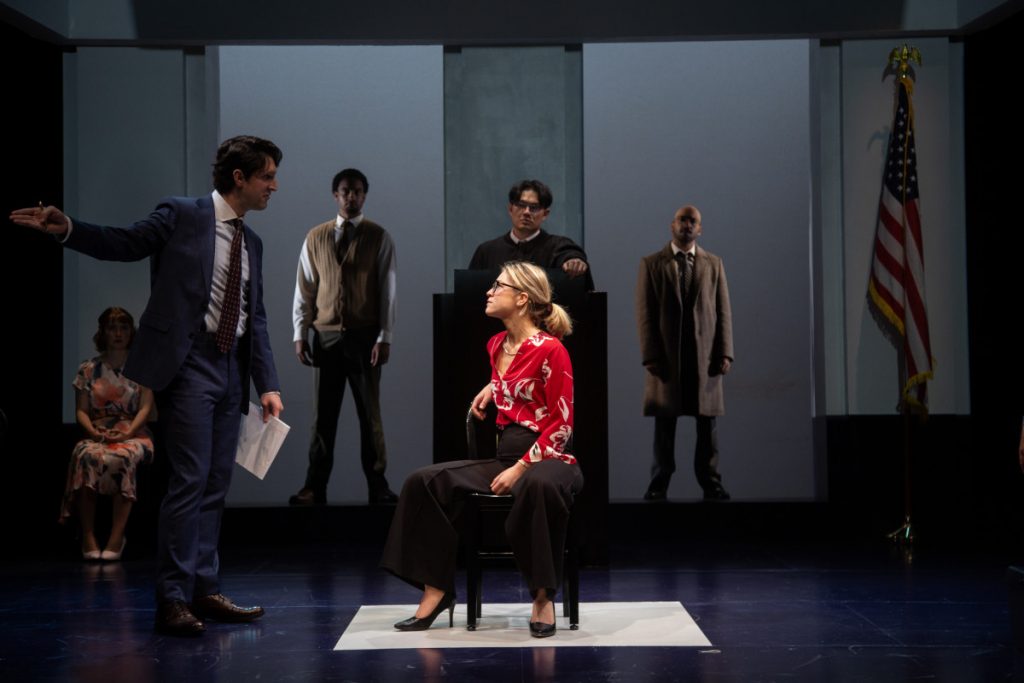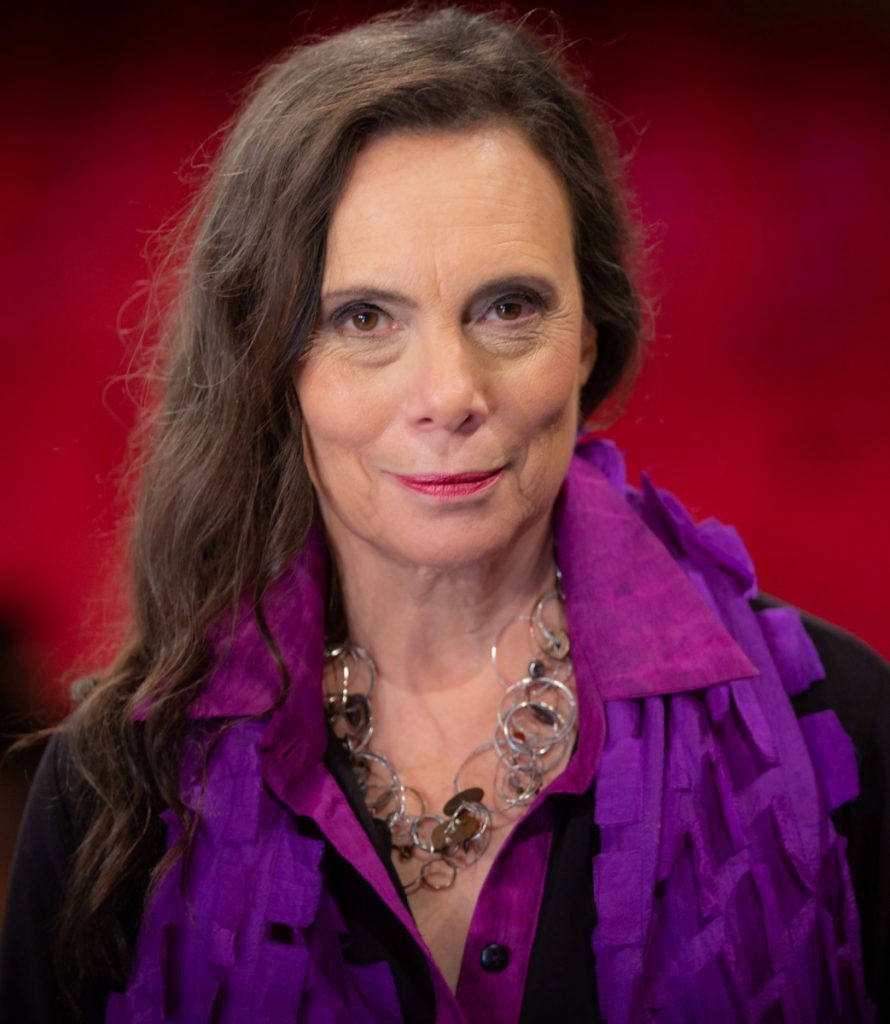

Julia Weber
Staff Writer
Born the daughter of a historian, playwright and director of Execution of Justice Emily Mann learned early on to back up her thoughts, feelings and opinions with facts.
In debates with her father, Mann remembered persuading him on various issues, appealing to his rationality by providing accounts made by experts or firsthand witnesses.
“It’s not out of the fevered imagination of your daughter, but in fact, this came out of someone’s mouth,” she said. “And he absolutely honored that.”
Chautauqua Theater Company’s staging of Mann’s Execution of Justice brings these very skills to center stage through the technique of documentary theater, a form of theater that depicts real-world events by relying on documents and primary resources. At 6 p.m. tonight in Bratton Theater, the play will stage its official opening.
Mann is a playwright, director and screenwriter. For 30 years, she served as the artistic director and resident playwright for the McCarter Theatre Center where she oversaw more than 160 productions, including more than 40 world premieres.
Mann’s documentary theater encourages conversation amongst viewers by presenting all sides of a complex issue and difficult story.
“I don’t like to preach to the choir, so if I actually want to instigate dialogue, which is one of the things I most want to do, then I have to be presenting all sides of something,” she said.
For Mann, the goal of the play isn’t answers, but quite the opposite: questions. She hopes viewers will leave thinking and talking about the play, and that they’ll consider not just the specific scenario, but how it relates to the political climate of the country today.
As both the director and the playwright of CTC’s Execution of Justice, Mann has jurisdiction over the creative decisions concerning the play.
“I was able to refine it both as a director and as a playwright, and then the two of us became one,” she said. “Somehow, the playwright and director became one mind, and that’s a great feeling, and that happened for the first time here, so this has been an enormous gift.”
Since the play’s debut at Arena Stage 40 years ago, Mann said she can revisit the work with the perspective she has gained since then and think about the particular reasons to stage it now.
“I had the opportunity to look at the play anew, having grown a lot in 40 years, as both the writer and director, and find a way to shape it absolutely for this moment in time and for Chautauqua and this particular production,” she said.
Mann said the play brings a complex issue to an engaged audience for what she hopes will spark rigorous debate. Through the lens of a jury, Execution of Justice asks audience members to step into the role of a juror and think about not only how they might have acted in the trial of the man who assassinated Harvey Milk, but how the play speaks to current issues.
“This play asks the audience to be the jury,” Mann said. “What’s amazing about Chautauqua is it is a thinking community. It is a community that loves debate; it’s a community that loves intellectual challenges and emotional challenges, and this play speaks directly to that. Hopefully there will be a lot of dialogue.”
Ahead of the play, Mann stressed the power a dominating narrative can have in society and reminded readers of how the same issues in the play are prevalent today.
“Whoever controls the narrative wins,” Mann said. “In this play, you see that emotion — and I hate to use the word, but I will — trumps the facts. We’re seeing that over and over and over in this country today. Culturally, politically and in every way.”




